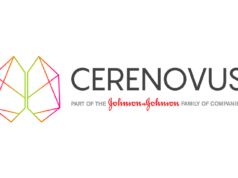
Lpath, according to a company release, has brought scientists one step closer to finding a potential treatment for traumatic brain injury with a recent publication showing that Lpathomab, an anti-lysophosphatidic acid antibody, reverses much of the damage caused by trauma to the nervous system.
As published by the Journal of Neuroinflammation (vol 11, article 37), Lpathomab can be used to reduce the size of a traumatic brain injury and to improve functional behavioural outcomes in experimental animal models. The antibody works as a molecular sponge by soaking up lysophosphatidic acid, a molecule that can damage neurons and promote dangerous inflammatory responses in the central nervous system.
In collaboration with scientists at the University of Melbourne, the antibody was tested in mice that had traumatic brain injuries. A key finding of the study was the significant efficacy of administering Lpathomab after an injury, thus demonstrating a potential therapeutic benefit. Also shown for the first time in this paper was that human patients with traumatic brain injury exhibited substantial increases in the levels of lysophosphatidic acid in the cerebrospinal fluid after injury, a finding also seen in the injured mouse model of traumatic brain injury; such data suggest that lysophosphatidic acid is a valid target for therapeutic intervention.
Lpath and its Melbourne collaborators have recently shown that Lpathomab provides protection against neuronal cell death and scarring in experimental models of spinal cord injury, published recently in the American Journal of Pathology (Goldschmit et al, vol 181, 978-992). Currently, there are no FDA-approved drugs for the treatment of neurotrauma such as traumatic brain injury and spinal cord injury.
“This research provides new hope for therapeutic treatments for many forms of neurotrauma, including traumatic brain injury and spinal cord injury as well as other forms of neurodegenerative disorders,” says Roger Sabbadini, vice president and founder of Lpath and co-author on the paper. “We believe that lysophosphatidic acid may be a biomarker that could be used to aid in the diagnosis of traumatic brain injury, as the ’lysophosphatidic acid pulse’ that occurs in the injured brain can also be detected in blood.”
The research team was comprised of Lpath scientists and collaborators from the University of Melbourne, Monash University and the University of Kentucky.













